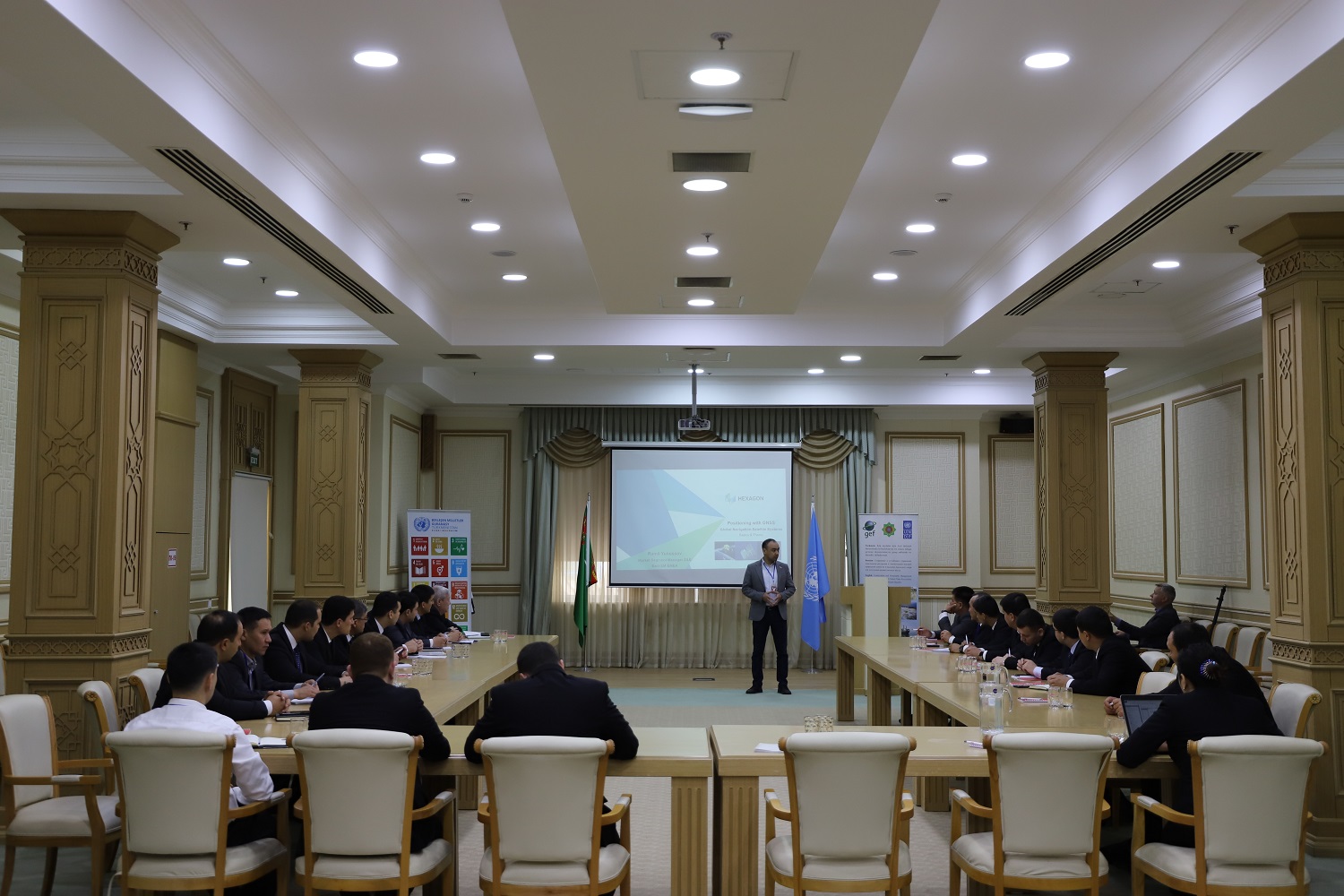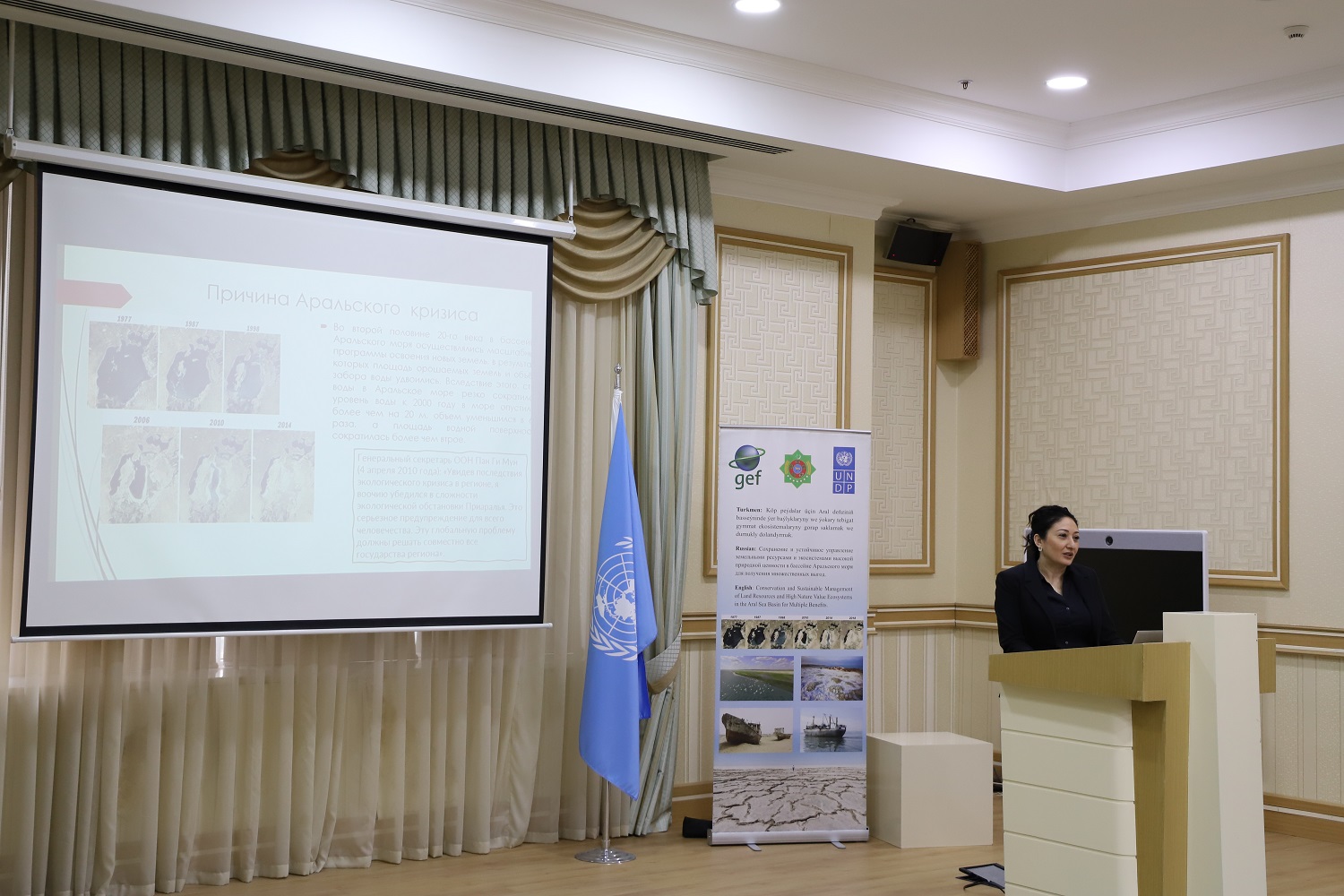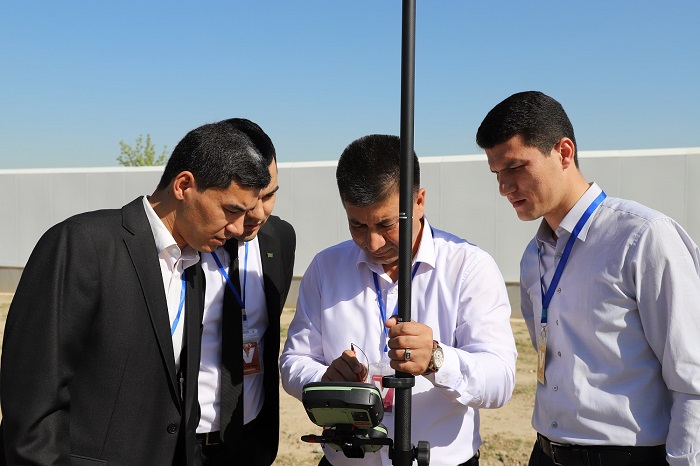Ashgabat, 8 April 2024: On 2-6 April 2024, within the framework of the UNDP/GEF project “Conservation and sustainable management of land resources and high nature value ecosystems in the Aral Sea basin for multiple benefits”, a five-day training workshop was conducted. The workshop centered on utilizing the Global Navigation Satellite System of Base Stations (GNSS) to enhance agricultural land management and was attended by specialists from the Ministry of Agriculture of Turkmenistan.
The purpose of the training, led by international experts, was primarily to train specialists of the Land Service of Turkmenistan from all regions on using the modern tools of land measurement. It is expected that the acquired experience will improve the country’s cadastral registration system, which will ultimately contribute to combating desertification and achieving land degradation neutrality.

At the initial phase of the training, international specialists introduced local Land Service experts to the basic principles of GNSS operation, including the existing capabilities and expected advancements of GNSS stations around the world. The training followed by a practical session, during which specialists engaged in the installation, configuration, and maintenance of GNSS receivers, as well as performing measurements of areas and volumes, and automated point measurements indicating their respective parameters.
“The Global Navigation Satellite System is a system designed to determine the geographic coordinates of ground, water and air objects, as well as low-orbit spacecraft,” said international training facilitator Mr. Aleksandr Dianov. “GNSS technology plays a crucial role in promoting improved land management practices by providing farmers with accurate positioning and data collection capabilities, enabling them to improve land management, optimize farm operations, enhance productivity, and promote environmental sustainability”.

The training was organized in cooperation with the FAO/GEF project “Integrated natural resources management in drought-phone and salt-affected agricultural production landscapes in Central Asia and Turkey (CACILM-2)”. /// nCa, 9 April 2024 (In cooperation with UNDP Turkmenistan)
